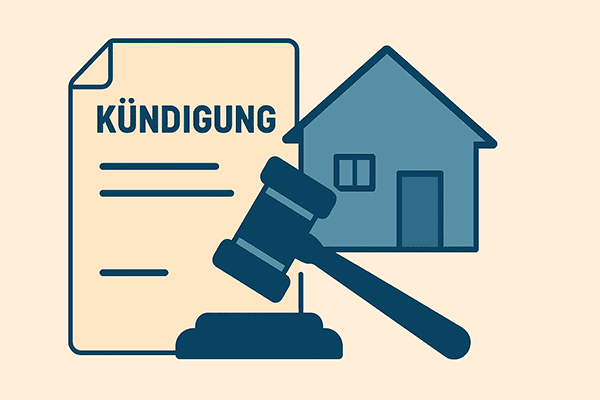Nice to have you here
at WG-Gesucht.de!
at WG-Gesucht.de!
Select Credit Report
Please choose a provider for your credit report.
 Ordinary termination must always be in writing — tenants may cancel freely with notice, while landlords need valid reasons such as personal use or breach of duty.
Ordinary termination must always be in writing — tenants may cancel freely with notice, while landlords need valid reasons such as personal use or breach of duty.
Tenants may terminate the lease at any time in compliance with the statutory notice period of three months (§ 573c(1) BGB). The termination must be in writing — email or text messages are not sufficient.
The notice must be personally signed by the tenant and received by the landlord no later than the third working day of the month for that month to count toward the notice period. No specific reason is required.
After the notice period ends, the tenancy automatically terminates, and the tenant must return the apartment in proper condition as agreed in the contract.
Unlike tenants, landlords may only terminate a lease if they have a legitimate interest in ending it (§ 573(1) BGB). A general wish to re-rent or raise the rent does not qualify.
The landlord must state the reason for termination in writing — without a valid reason, the notice is invalid. The required notice period depends on the duration of the tenancy and ranges from three to nine months.
A landlord’s legitimate interest typically exists in the following cases:
In all cases, the termination must be in proper form, within the correct deadline, and include a clear justification to be legally valid.
Tenants have the right to object in writing to a landlord’s termination if they can prove special hardship (§ 574 BGB) — for example, due to old age, illness, or lack of alternative housing.
This objection must reach the landlord no later than two months before the notice period ends. If accepted, the tenancy may be extended or the eviction postponed.
Tenants should seek legal advice from a tenant association or lawyer to ensure deadlines are met and to assess their chances of success.
Three months. The written notice must reach the landlord by the third working day of a month to take effect that month.
Only with legitimate reasons — such as personal use, tenant misconduct, or economic necessity.
Yes. Tenants can object in cases of hardship, for example, due to illness or insufficient replacement housing (§ 574 BGB).